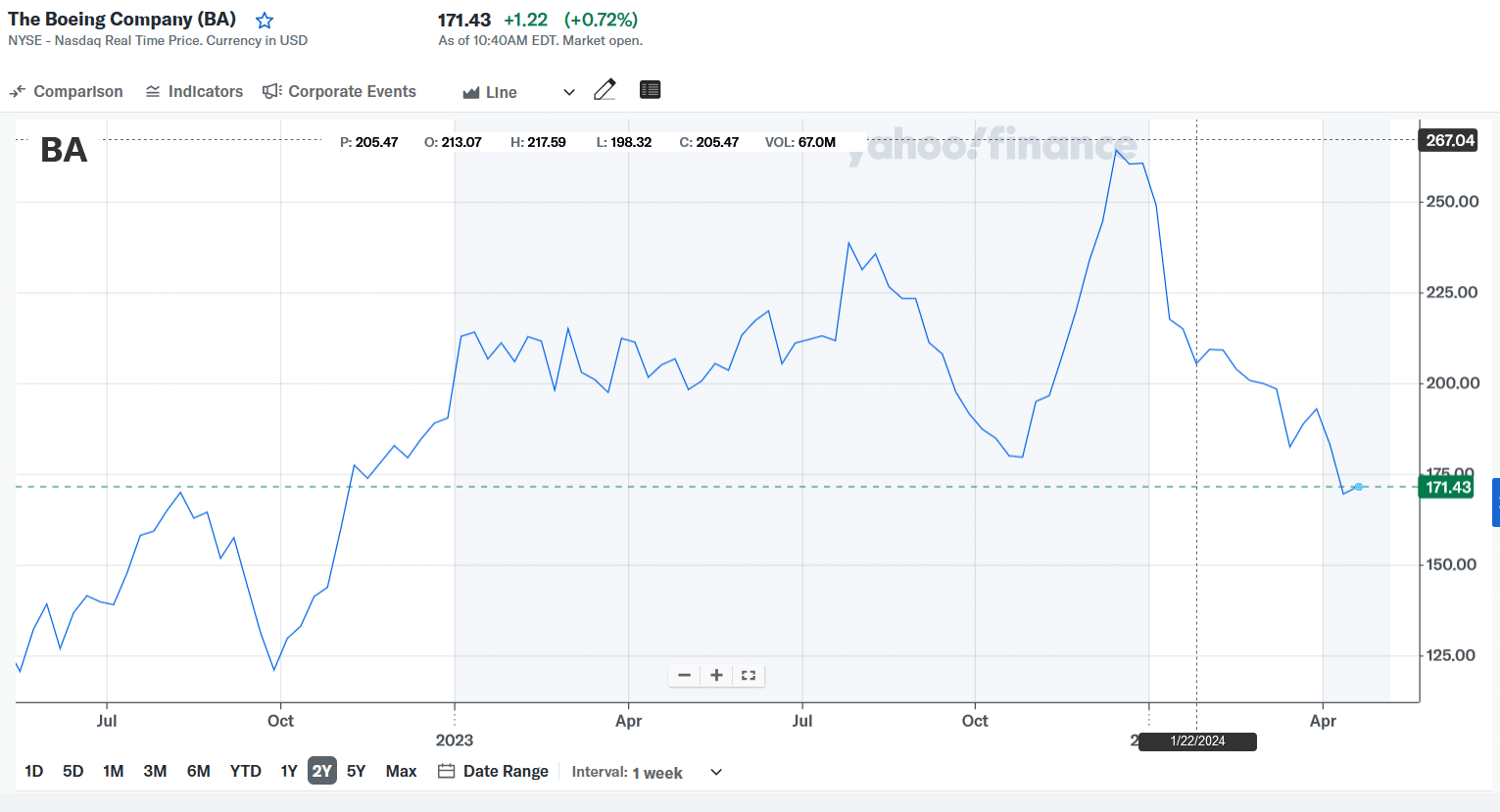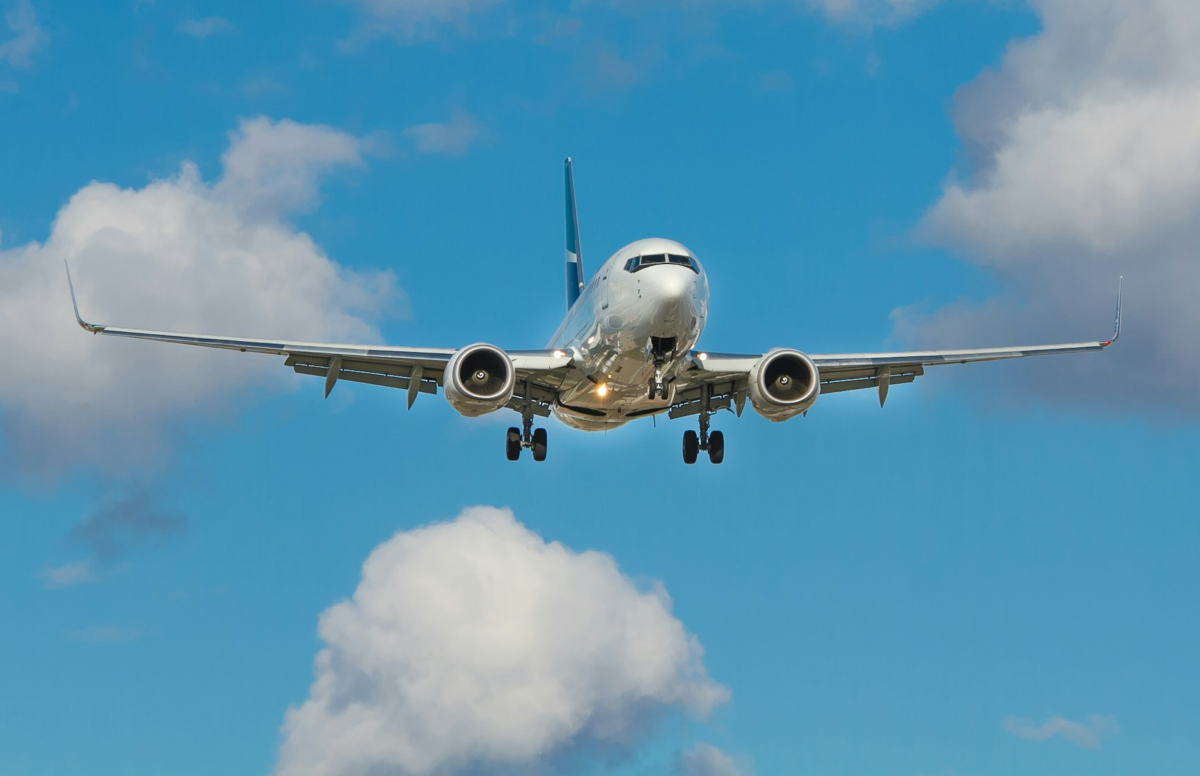Boeing’s whistleblower crisis is worsening by the day. In his explosive testimony, the new whistleblower Sam Salehpour has reiterated that the company not only ignored the safety concerns that he raised but also retaliated against him.
Salehpour, who has worked at Boeing for three decades said that for three years he warned Boeing officials about the security issues.
He also wrote written memos to senior executives including Mark Stockton, senior director for Boeing’s 787 engineering, and Lisa Fahl, a vice president.
Speaking before the Senate Homeland Security Permanent Subcommittee on Investigations, Salehpour said, “My boss said, ‘I would have killed someone who said what you said in a meeting,’” He added, “I was ignored, I was told not to create delays, I was told, frankly, to shut up.”
What You Should Know About Boeing’s Ongoing Whistleblower Crisis
- Explosive Whistleblower Testimony: Sam Salehpour, a Boeing employee of 30 years, testified before the Senate, accusing Boeing of ignoring safety concerns and retaliating against him .
- Allegations of Safety Issues: Salehpour’s claims include improper fastening of fuselage parts in over 1,400 aircraft. He alleges that Boeing prioritized production speed over safety .
- Impact on Stock and Leadership: The crisis has contributed to a 35% decline in Boeing’s stock value this year, amid leadership changes and ongoing government investigations .
- Boeing’s Response: Boeing denies retaliatory actions and insists on its commitment to safety, though it faces increasing pressure to address its internal culture and transparency .
Whistleblower Testifies That Boeing Ignored Safety Concerns
Previously, Salehpour accused Boeing of taking shortcuts in the construction of its 787 and 777 jets, where parts of the plane’s fuselage were not properly fastened together. He also alleged that there was a lot of pressure on Boeing engineers to provide a go-ahead on work they had not even inspected.
According to Salehpour, the issues impact more than 400 777 and 1,000 787 aircraft which is a massive portion of the jets Boeing has delivered to customers.
In his testimony now, Salehpour said, “The attitude from the highest level (at Boeing) is just to push out a definitive part, regardless of what it is.”
If Boeing heeded the whistleblower complaints, it would likely have served the cause of not only the company, investors, and the public at large as there have been multiple horrendous safety incidents associated with Boeing aircraft.
Earlier this year, a door panel of a 737 Max jet blew off during an Alaska Airlines flight. After that event, Boeing made some leadership changes while the US Justice Department began a criminal investigation. Boeing’s CEO Dave Calhoun also resigned last month and would step down by the end of 2024.
In yet another incident, the engine cover on a Southwest Airlines Boeing 737-800 fell off during takeoff earlier this month.
These are all recent events too. Boeing’s worst and most criminal failure was its decision not to freeze 737 Max planes after one suffered a horrible crash killing 189 people. Boeing’s negligence allowed 737 Max planes with the same fatal software error to fly, leading to another crash that killed another 157 people.
The 737 Max has faced several other controversies in the past, and the FAA grounded the fleet twice. Earlier this year, the FAA halted the production expansion of Boeing 737 Max.
Boeing Is Going Through a Whistleblower and PR Crisis
Boeing is going through what could be best described as a PR disaster. The frequent safety-related incidents coupled with the serious accusations by multiple whistleblowers are not helping any good to the brand.
While Salehpour’s testimony does not provide any new details it is still important as this time he has testified before the Senate which adds more weight to his allegations.
Meanwhile, Boeing is at the center of another hearing and the Senate Commerce Committee heard testimony from members of an expert panel that showed massive flaws in Boeing’s safety culture.
Boeing whistleblower Ed Pierson accused the plane manufacturer of a "criminal coverup" during a Senate hearing Wednesday. "A five-minute testimony is not nearly enough time to explain how insidious this story is." pic.twitter.com/QGGxkXU495
— Newsweek (@Newsweek) April 17, 2024
Ed Pierson, a former Boeing engineer who is now executive director of the Foundation for Aviation Safety, accused the company of “criminal cover-up” as federal safety investigators haven’t been able to obtain records of who installed the door plug on the Alaska Airlines plane.
According to Pierson, the data exists but Boeing is not willing to share it.
Notably, another whistleblower, John Barnett, previously raised extremely similar concerns about Boeing’s production process. Unfortunately, after being asked to give one more day of testimony, he was found dead in the US by apparent suicide.
There is still no physical evidence to indicate that this was anything other than suicide, though statements of disbelief from friends and family have cast doubt on the theory. Some conspiracy theorists are arguing that Boeing executives may have killed Barnett and staged a suicide, but again, there is no physical evidence of this as of yet.
BA Stock is Suffering Amid the Crisis
The whistleblower complaint is taking a toll on Boeing stock (NYSE: BA) and with a YTD loss of around 35%, it is the worst-performing Dow Jones stock this year. While the stock is up slightly today it is trading near its 52-week lows amid the fallout from whistleblower complaints and continued security-related incidents.

Last week, Bank of America analyst Ronald Epstein lowered his price target on BA stock from $210 to $190 while maintaining his neutral rating. He argued that in the short term, “there are risks due to disruptions related to management changes, multiple government investigations and the potential acquisition of Spirit AeroSystems.”
He is however constructive on Boeing’s long-term outlook and said, that the company “will be able to continue to benefit from the robust global air travel demand environment and, in the long run, benefit from improved quality assurance.”
Boeing’s Response to Allegations
All said it remains to be seen whether the whistleblower complaints and the public furor over Boeing’s safety culture actually leads to a structural change at the company. While the company has rejigged its top leadership and is set to get a new CEO later this year, it still appears that it is shrugging off the allegations rather than working to resolve the issue.
It also denied that it retaliated against Salehpour saying “retaliation is strictly prohibited at Boeing.” Overall, it remains to be seen whether things really change at Boeing after the whistleblower complaints or if it becomes the typical “business as usual” when the issue drops off from the headlines.
As for BA investors, how the company changes after the revelations could determine its long-term outlook, especially as Chinese state-owned plane maker COMAC tries to capitalize on Boeing’s woes.
